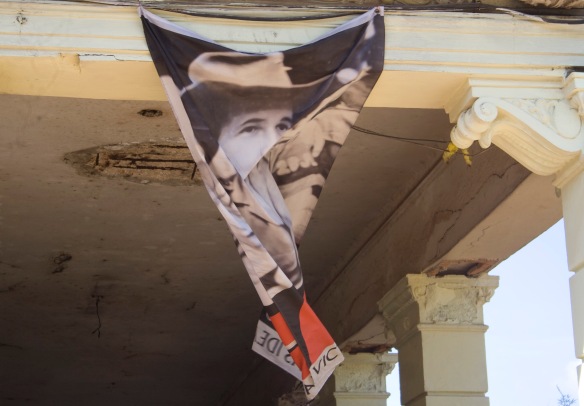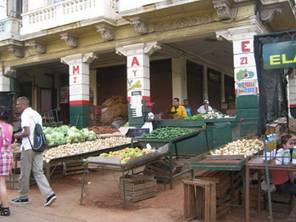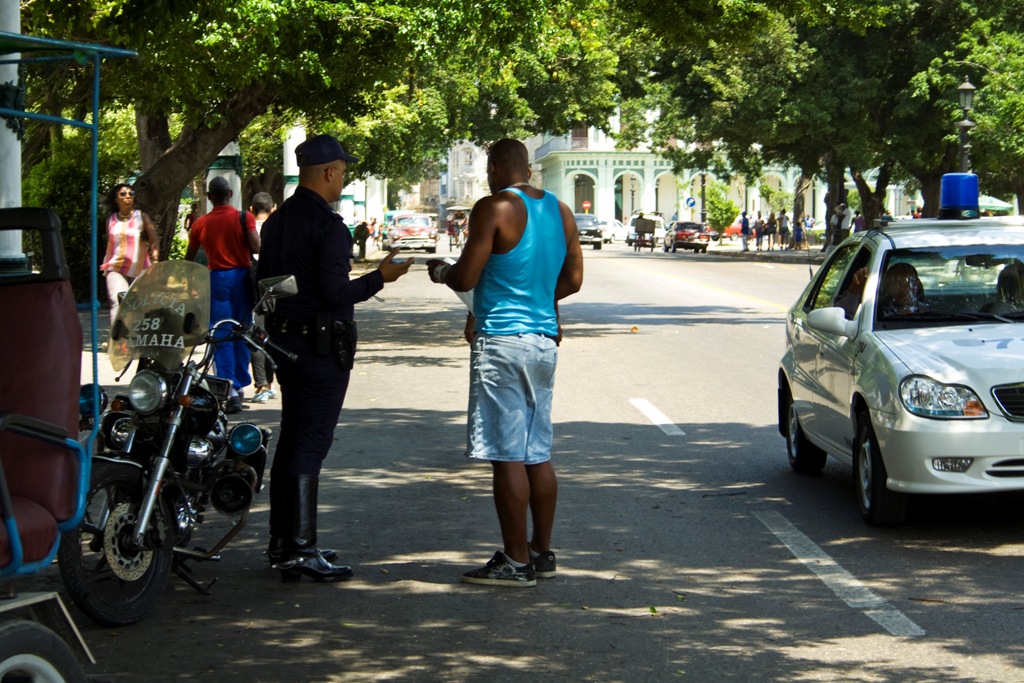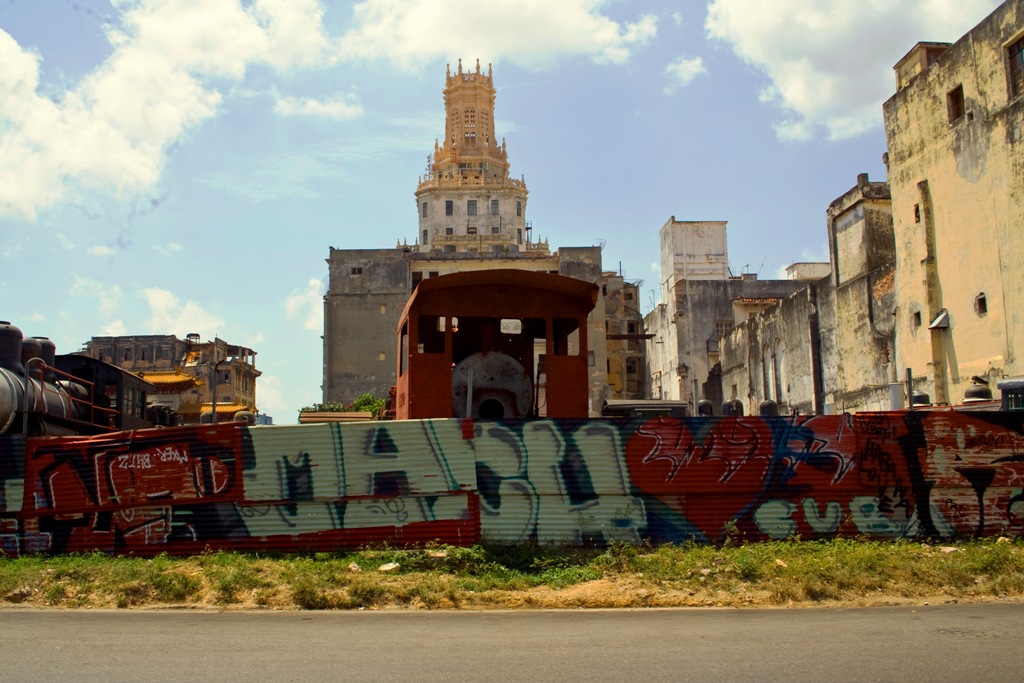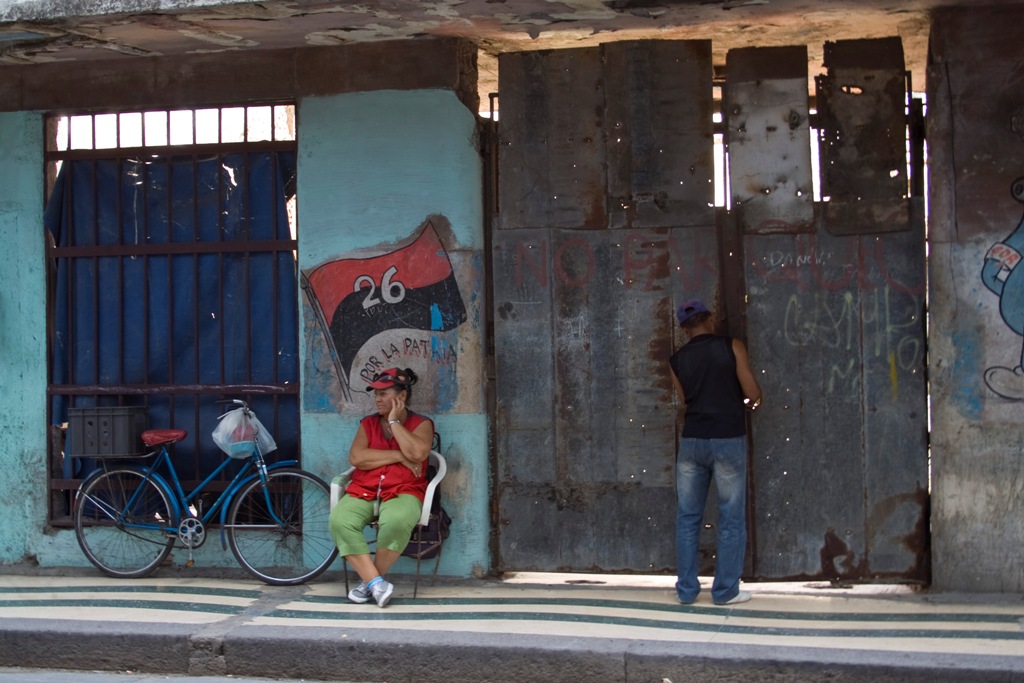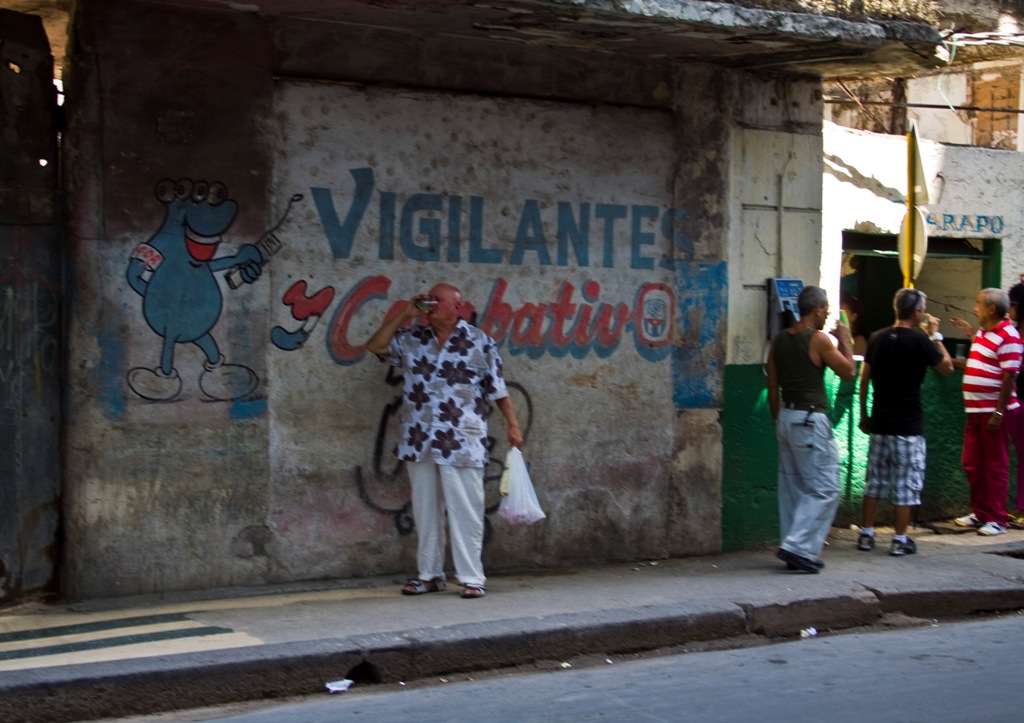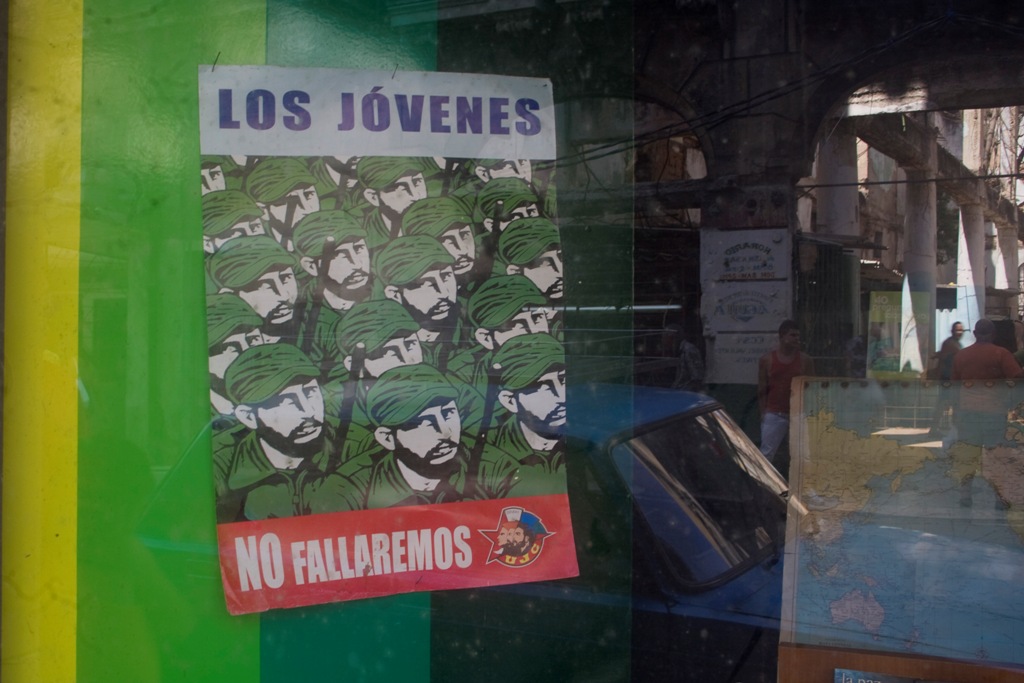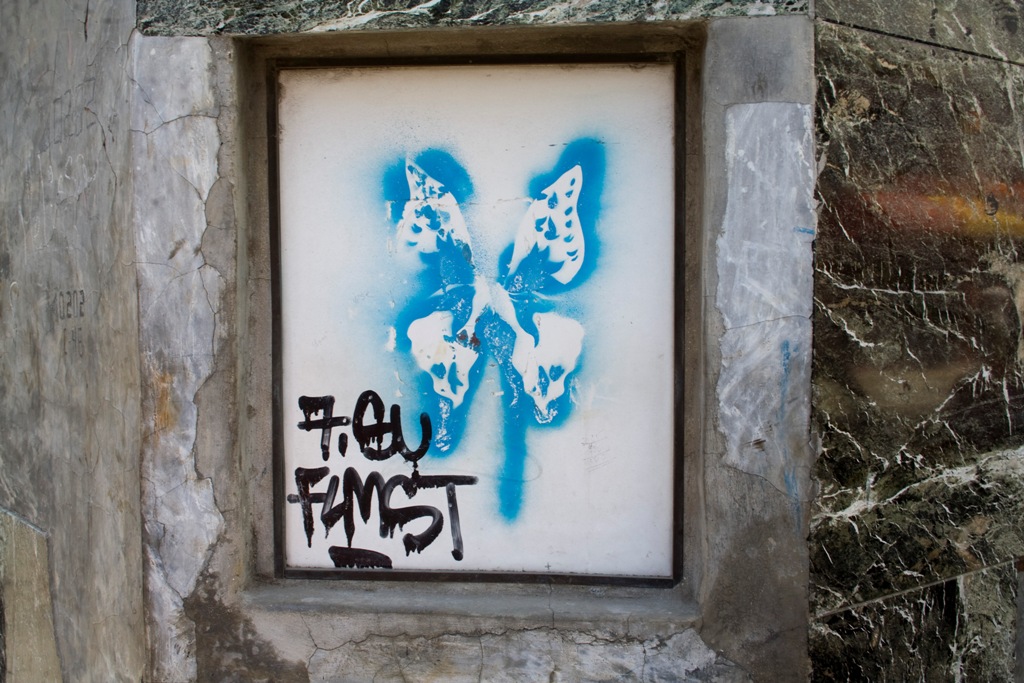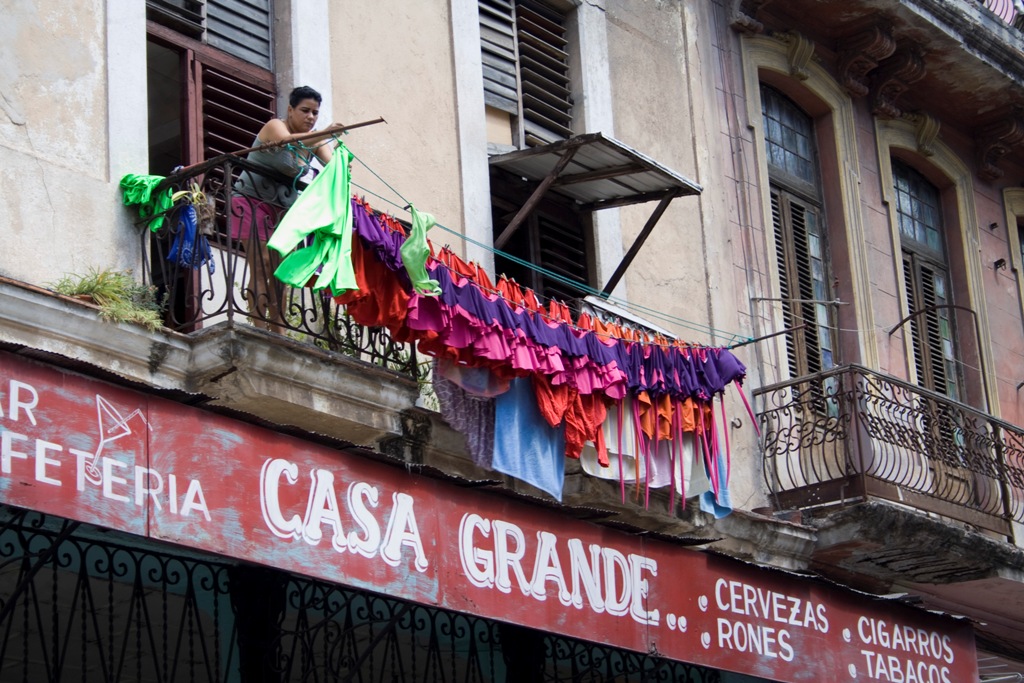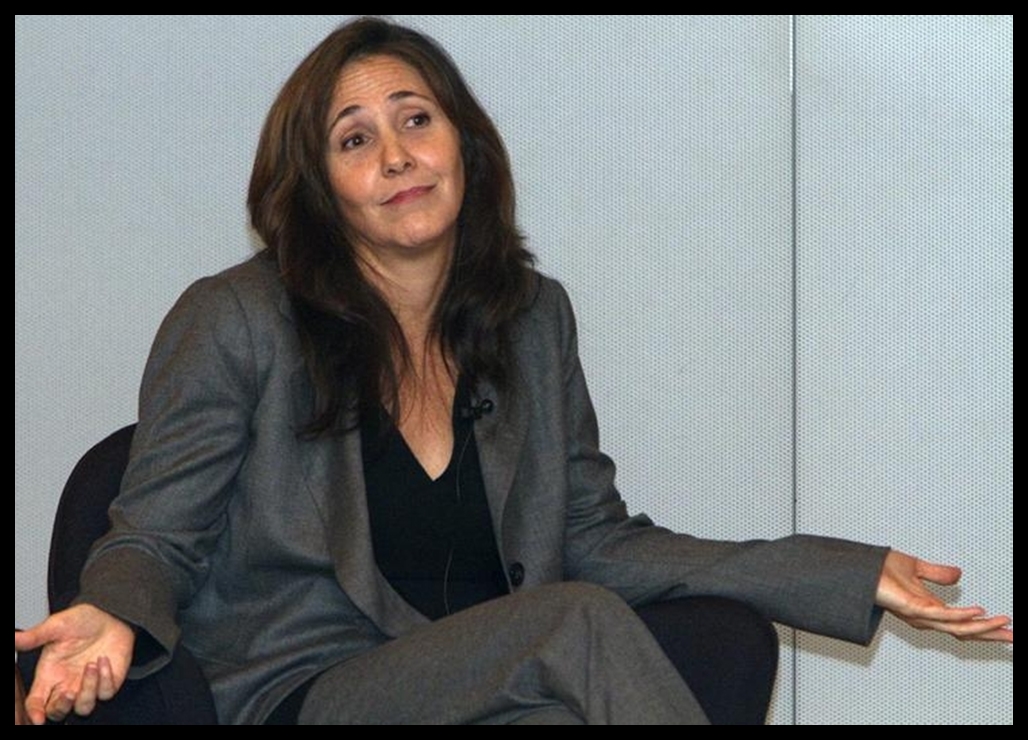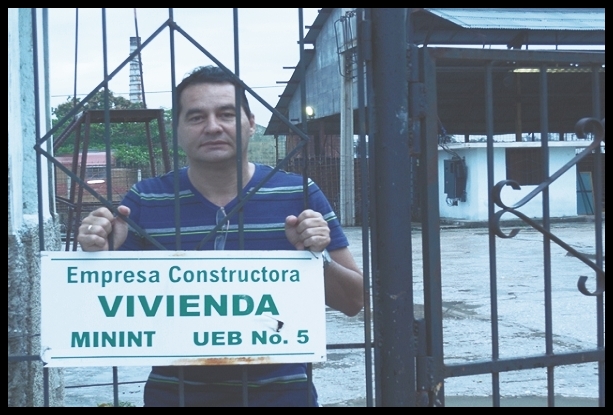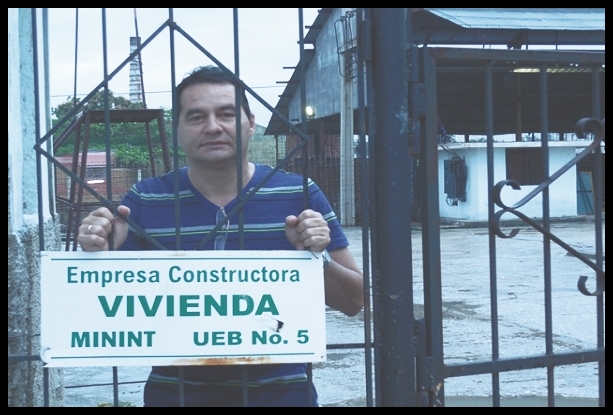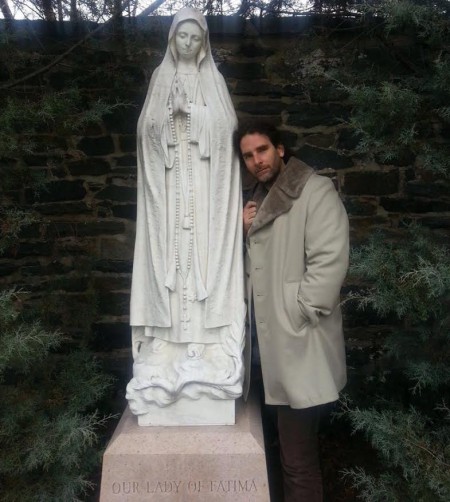What Happened to the Cuban Cigar? / Juan Juan Almeida
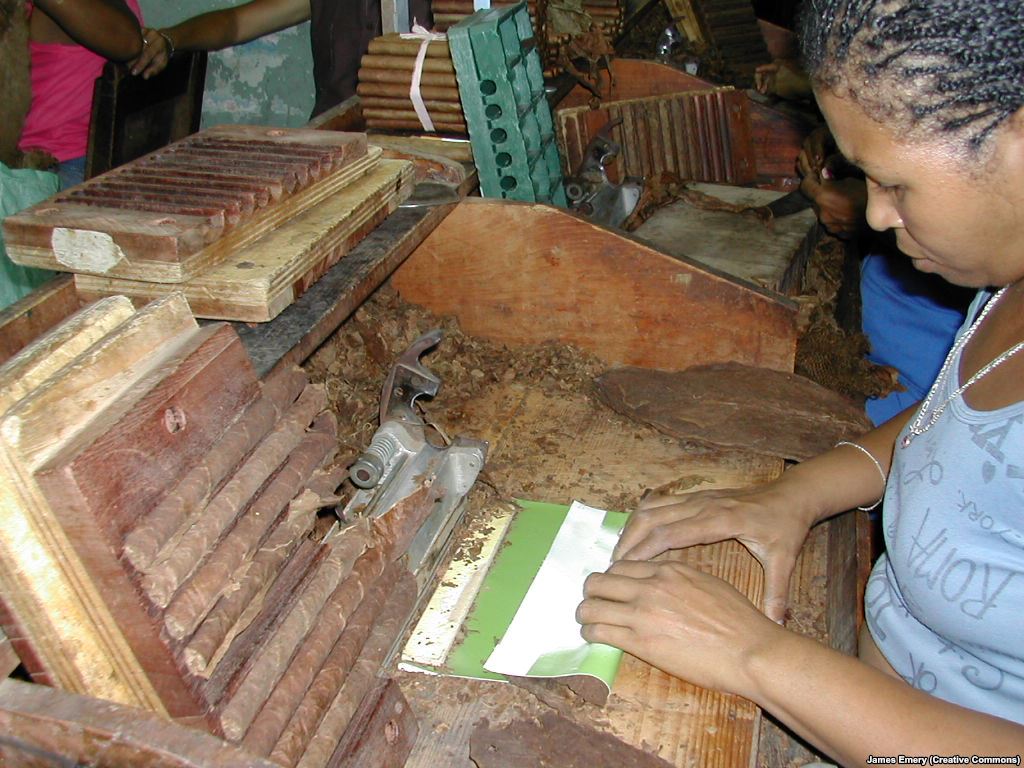 The story goes that Cuban natives consumed tobacco long before the Genovese admiral Christopher Colombus landed on the island.
The story goes that Cuban natives consumed tobacco long before the Genovese admiral Christopher Colombus landed on the island.
The studies and evidence show that our natives used it as a medicine, narcotic, aphrodisiac, and in religious rituals and celebrations. They smoked it, breathing through the nose and even drank it in concoctions.
Rodriguo de Jerez was one of the sailors who arrived in the Americas with Colombus and returned to old Europe with the habit of smoking. The Inquisition, after alleging that only the devil could concede to a man the power of taking smoking through the mouth, sentenced him to seven years in prison.
Nevertheless, the vice prevailed; tobacco became an industry, and although studies make clear that the plant has its origin in the Andean region between Peru and Ecuador, Cuban tobacco rapidly achieved the qualifier of “the best in the world.” And the term Havana appeared to conceptualize all the cigars where 100% of the product is cultivated and manufactured in Cuba after multiple and severe controls both at the level of agriculture and at the drying and twisting process. continue reading
It was 1800 and by then tobacco, like sugar, had fused with the history of our country; but the characteristics of the market and the pleasure of the smokers made the Havana, distinguished now by its provenance, start to be classified by the zone of the crop. So emerged prestigious brands like Partagas, H Upmann, La Corona, Por Larranaga, El Figaro, and others until 1966 when Fidel Castro created Cohiba, the leading brand of Cuba, which carries his name thanks the suggestion of his then chief bodyguard, Chicho.
Cohiba not only is the name of the tobacco of the highest prestige in the world, it is also a commercial brand that moves political influences, traffics in power and manages millions of dollars. It is sold at astronomical prices and is consumed in every corner of this planet. The Rolls-Royce of tobaccos is a golden bubble where pleasure finds a select group of people who only have money and power in common.
Throughout all its history the leaves used to handmake the bast cigar in the world have been jealously chosen, and marketing specifies that they come from the five best meadows from the region of Vuelta Abajo, Pinar del Rio.
Inclement weather, the Special Period, lack of fertilizers, financial liquidity, the fight against smoking and other series of factors made Cuban tobacco production decline. As hard as they tried they could not meet the commitments or the claims of a market that demanded greater quantity and quality from our leading product. The Commander in Chief himself, who by then was also a microbiologist, ordered the use of an in vitro production technique that would guarantee massive quantities of tobacco plant starts with the same high levels of excellence; but obviously, the plan did not bear fruit. And so we arrive, as always, at deception.
“The country of tobacco” clandestinely bought selections of leaves in Nicaragua and small quantities in Ecuador, countries where it is known that the tobacco plantations pass through a strict quality control with international standards. The quasi-contraband leaves were used for the manufacture of tobacco that was sold, and which was given to influential leaders. A real joke, “the best Havana in the world” without guarantee of origin.
Just the Cuban part of the joint venture Habanos S.A. can answer if this government scam persists. One more.
Translated by mlk.
13 May 2014
Napoleon and El Comandante, A Dangerous Fusion / Juan Juan Almeida
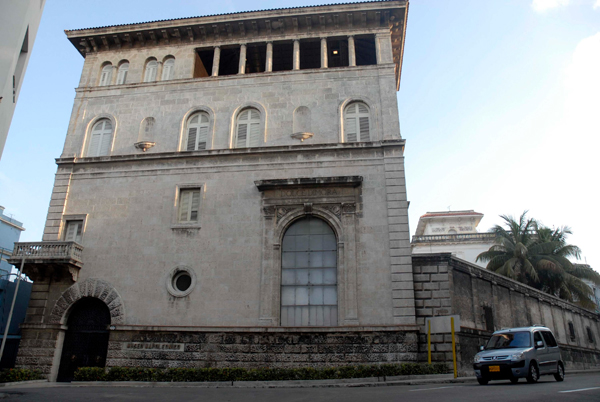 Latin Press reported that this coming July the XII International Congress of the Napoleonic Society will meet in our country. So far delegates from several countries have confirmed their attendance.
Latin Press reported that this coming July the XII International Congress of the Napoleonic Society will meet in our country. So far delegates from several countries have confirmed their attendance.
The director of the Cuban Napoleonic Museum and organizer of the event, Dr. Sadys Sanchez, let loose her tongue, and after comparing Fidel with Napoleon, announced that the central theme of said event, “the Napoleonic revolutions around the world,” will prove how close we are to the ruler who sat down to eat with his troops; and will demonstrate that his conquests transcended geographic, military and political levels in order to surface in our culture.
Maybe I am a bit paranoid but this makes me think that this Napoleonic fair has a second purpose. Luckily the newspaper also serves to clean the windows.
Translated by mlk.
16 May 2014
Who Said All Is Not Lost? Anyway, I Come to Offer My Heart / Orlando Luis Pardo Lazo
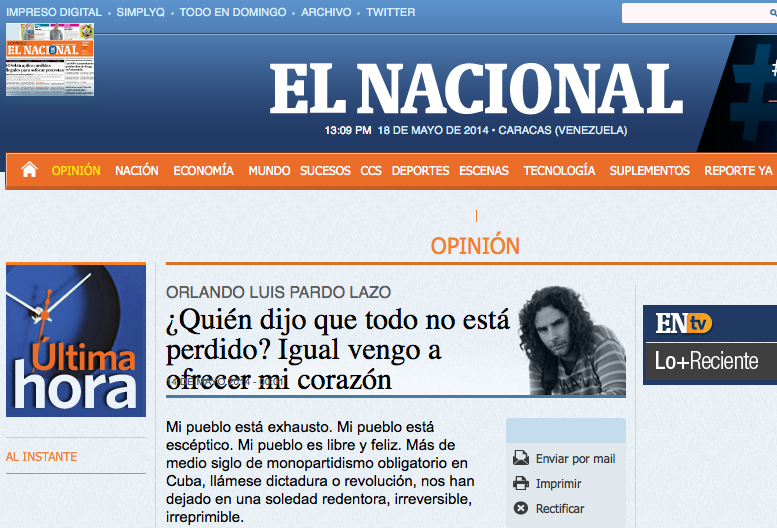 My people are exhausted. My people are skeptical. My people are free and happy. Over half a century of forced one-party rule in Cuba, call it a dictatorship or a Revolution, has left us in n a redemptive, irreversible, irrepressible loneliness.
My people are exhausted. My people are skeptical. My people are free and happy. Over half a century of forced one-party rule in Cuba, call it a dictatorship or a Revolution, has left us in n a redemptive, irreversible, irrepressible loneliness.
Cubans escape from Cuba. That is now our victory, our permanent plebiscite. We are leaving. Goodbye, intimate and intimidating little island of my love. Goodbye, homeland lost and unforgettable forever. Goodbye, finally, Fidel.
We did the best we could while we could. For decades and decades trying to place a magic bullet in the heart of Castro. To kill death. Or busting his head in his convertible Mercedes Benz, like Dallas. Very diabolical, perhaps also very vaudeville.
But we lost that first marathon of who killed whom. We didn’t even dare to poison him. To put him in a wetsuit with skin toxins. To give him an exploding cigar, to make him fly into a thousand splinters in the worst half of our country. A foreign woman, Evita excited that she sat on Fidel and squeezed from him a couple of olive green orgasms, cost the CIA thousands and thousands and all for what. The Commander amply demonstrated his criminal ability was second to none. Whoever kills first, can not be killed later. That’s how it is. continue reading
We Cubans knew, but today we do not want to acknowledge that assassination was, from the beginning, the only magnanimous alternative against Castroism in perpetuity. Our dead, disappeared, tortured and deported numbered in the thousands in every generation and, in turn, they are bodies that will count for nothing. Bodies that nobody will count. Detritus for the databases. Latin America laughed to the rhythm of the revolution. We were dying. But it already happened.
In the end, we are all going to die on a bed, in posthumous peace. No more bodies in the streets of Cuba. We got tired of falling. A blow-up pillow, this will be our best shroud. Like Castroism is not an octogenarian orthography. Kills just coasting. His immortality discolors every moment drop by drop. And, as the image and likeness of Fidel was designed and imposed on the country, pregnant Cubans today give birth to octogenarians as obsolete as he is. We are aging as a nation. From delirium to decrepitude without transition.
My people are impossible, postnational. My people are the most perfect possible. I wonder if it has not been this excruciating victory, at the turn of more than a half century of dictatorship and revolution , we Cuban catch ourselves, irreconcilably between them, making ourselves at once ungovernable, unFidelable, condemned to, or better yet decorated with, the malevolent medal of a perpetual diaspora. To err is preferable to the horror.
Fidel, you won. We let you live. Peoplecide. But prepare yourself for what is coming You will have no country to scatter your ashes. There will be no history where you are glorified. There will be no time to pay attention to you. We will be so happy without you. I love you. From this unlikely unlimited freedom, we love you. We return you to the disappointment, this proud orphanage from where you can never return.
14 May 2014
Game Changer / Fernando Damaso
Accustomed to the crumbs of a patriarchal government, incapable of assuring productions, dedicated for years to false egalitarianism in distributing misery among ordinary Cubans, on beginning to put the laws of economics into practice and, with them, those of supply and demand, some citizens are screaming bloody murder at the high prices of products for popular consumption, principally those related to agriculture.
It’s natural that this should happen: as long as production doesn’t meet and exceed demand, prices won’t fall.
Acting as if they’ve discovered warm water, some propose fixing price caps on products, without understanding that this bad practice, applied for years,was one of the causes of the national agricultural debacle, because it doesn’t stimulate production. Others speak of fixing a maximum profit percentage, without considering its impracticability, because it’s precisely the State and its commercial networks that have established profits of 100%, 200%, 300%, 400% and more above the costs of the products for sale, whether imported or from the scarce national production, and I doubt they’re disposed to turn off this spigot of foreign currency and even local currency.
Therefore, using a baseball analogy: we have to stop playing loose and learn to play hard.
18 May 2014
OLPL Speaks at Johns Hopkins / Orlando Luis Pardo Lazo
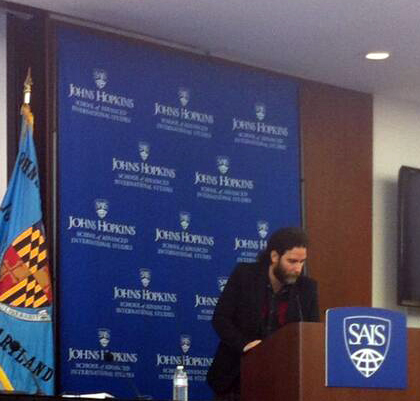 Speech by OLPL in Kenney Auditorium, Johns Hopkins University School of Advanced International Studies, Washington DC, 16 May 2014.
Speech by OLPL in Kenney Auditorium, Johns Hopkins University School of Advanced International Studies, Washington DC, 16 May 2014.
Dear friends:
As a Cuban from the Island —and all Cubans are, no matter how far and how much time has passed since we left or were expelled from the Island—, as a critical intellectual —that is, a writer and photographer who believes in the beauty of truth, even when nobody listened— and also as a Cuban from the exile, of course —because all Cubans are as well, no matter if we still live inside the Island, where we are “inxiles”—, it’s a privilege and a great honor to be invited here to share my experiences and my vision with you today.
I hope that my words can give voice to the countless alternative voices that exist and resist in my country. These are real men and women who cannot live normal lives in their birthplace, since their whole existence is disrupted day by day —and decade after decade— by the perverse nature of a regime never elected by my people, by the propaganda machinery and the impunity of the political police, in a despotic version of socialism that, as in any totalitarian State, starts by abolishing private property, only to end up destroying private life as such, harassing citizens whether or not they become aware of the power of the powerless and decide to bear witness to their own reality. continue reading
Indeed, the concept of citizen itself is officially obsolete inside Cuba, since the term is used exclusively by the authorities when the police carry out a detention or when a tribunal opens a trial. So, if they call you “ciudadano” (citizen), then you know you are lost even if you are innocent or, worse —as in a Kafka novel—, even if you don’t have any idea of what you are guilty of. Therefore, perhaps the crime is the social process itself.
On the one hand, I speak here quite confident, after so many walls that seemed would never fall and yet they did fall in the last 25 years. On the other hand, I also speak so very worried in front of other walls that should have been brought down already and still have not been. I’m particularly concerned about the new walls that many governments seem to be building, in a battle that may well be developing in perfect peace, little by little, corroding the basis of democracy on our planet, by the use of democratic disguises that hide the intentions of the system, until it’s too late for the people to react and get rid of the oppressors.
The Cuban people might have suffered this process twice:
1. Not only after the military takeover of January 1st 1959, but before the victory of the so-called Revolution, the confidence of a whole nation was betrayed by secret agendas that involved the hegemonic potencies of the Cold War world back then, plus the never-ending hunger for power of Fidel Castro and his closest followers. Believe it or not, many of those men —those who were not devoured by the rage of a Revolution so similar to Saturn, who eats his own children— those men are still alive and in absolute control in Cuba now, although they are not mentioned in the manipulative billboards of the CubaNow campaign that this month is being displayed in the stations of Washington DC metro. This gerontocracy is an elite so cynical as to call themselves “the historical generation”. Or maybe they are just being transparent, since it’s really impossible that history will forget or forgive this generation created in the image and likeliness of the Maximum Leader. Thus, despite the previous dictatorship, in 1959 Cuba lost a democratic republic with a then recent Constitution that even today would be considered a paradigm in the recognition of differences within unity.
2. In the 21st century itself, in this 2014 that looked like science-fiction for the teenagers that we were in the late 80’s, a Transition is now taking place in my country, but not from Law to Law —as in the Spanish democratization model— but from Dictator to Dictator, in the Caribbean style, including a dynastic tradition of blood: from the original Castro to his brother Raul; then, when he steps down most likely after 2018, to his daughter Mariela (now Deputy in the National Assembly of People’s Power) or to his son Alejandro (a high-ranked intelligence officer, the much feared tropical version of Vladimir Putin and other autocrats of the kind), or to both. Indeed, since its independence from Europe centuries ago, Latin America is a region devastated by criminal caudillos that call themselves Liberators, Saviors, and ultimately Fathers of our homeland. So, 55 years after the enthusiasm of a Revolution, just when the light at the end of the tunnel is a growing illusion in the soul of my nation —inside and outside the Island—, once again a secret operation is on its way to abort our hopes to be free.
However, nowadays an emerging civic society is peacefully struggling in Cuba, face to face against such a transition from Communism to State Capitalism, a strategy for the system’s survival that relies on the populist regimes of the region, on geopolitical globalization, and on the irresponsible greed for profits of both foreign and, most sadly, Cuban investors living abroad, the majority in the United States, now under an administration that, like European Union, seems more than willing to “normalize” the relations with an “abnormal” regime, disregarding the violations of human rights in Cuba, as part of a time left behind long ago. Thus ensuring, by the way, a fossil future for all Cubans wherever we may live. The rationale here appears to be that, if democracies cannot prevail over the enemies of freedom, then it’s better to make an alliance and, preferably, to do business with them. In free nations maybe nobody conceives a Cold War II scenario, but the rationale of totalitarianism is totally different for sure.
Please, allow me to re-write the famous poem of Allen Ginsberg: America, you’ve given them all and now you’re nothing… I wouldn’t like to be the spokesman of bad news for the Western world, but next time we take a close look at the politic equilibrium in our hemisphere, for example, we might be surprised that it will be too late to react and get rid of the oppressors.
Dear friends: since I became an independent blogger and journalist in Cuba, I was told, by the former Minister of Culture, Abel Prieto, and the former director of the Cuban Book Institute, Iroel Sanchez, that I will never publish again in my country. They were both removed from their positions later (Saturn’s law), but the unholy war of the Castros against critical intellectuals goes on and on.
While I talk here, the Havanan novelist Angel Santiesteban languishes a 5-year sentence for a common crime announced to him —by State Security agents— as a punishment for his opinion columns in his blog: Los hijos que nadie quiso /The Children Nobody Wanted.
While I talk here, a journalist from the free-lance agency Hablemos Press / Let’s Talk Press, Calixto Ramon Martinez was kept many months in prison for reporting an outbreak of cholera in Cuba, which still constitutes a serious health risk there, even for tourists, a fact that the Cuban government refuses to recognize in its due importance. Finally he was released without any explanation, documentation of his case, or at least an attempt to give him an apology or indemnify him.
While I talk here, a Catholic Afrocuban young mother and her husband, both peaceful pro-democracy activists, Sonia Garro and Ramon Alejandro Muñoz, have been for two years and two months in several Cuban prisons, subject to physical abuse and isolation periods, just because they protested when they were forbidden to attend the Holy Mass of the Pope Benedict XVI in the Revolution Square of Havana city, in March 2012. Hundreds of human rights activists were then arrested, including me, kidnapped for three days with my girlfriend, apparently accused of attempting to take counter-revolutionary photographs of His Holiness with the Heroic Guerrilla Ernesto Che Guevara behind him, in the façade of the mysterious Ministry of Interior where the mass took place.
While I talk here, an American citizen under contract by USAID, Alan Gross, is being held hostage since December 2009 in a Cuban jail, serving a 15-year sentence for charges that included espionage. A Jew himself, he was just helping the Cuban Jewish community to have a ready access to the internet, since the right to independent information is not recognized by my government. In fact, it constitutes a major crime: enemy propaganda, diffusion of negative news, among other brutalities of our actual Penal Code. This was a miserable mafia message thrown to the fair-play face of America: mind your own business, do not dare to try to help the Cuban civic society or you will pay a dirty price too.
Besides, dozens of well-known terrorists have found safe haven to grow old in Cuba and take care of their families and their fortunes, after a whole life devoted to international delinquency, including USA fugitives, ex CIA agents and hit-men associated with dictators and paramilitary bands worldwide.
To put an end to this very limited list —which cannot explain the thousands of death penalties by firing squad nor the untold number of Cubans dead in the Florida Straits trying to escape from our proletarian paradise— on July 22nd 2012, a car with two Cubans and two foreigners was intercepted in a remote province of Cuba. The two foreigners, young politicians from Spain and Swede, were beaten, taken away from the scene, drugged in a hospital, incarcerated, and threatened with death if they did not accept —in a public video shown by Cuban TV— that they just had had a car crash.
The two Cubans were assassinated, God knows if after one of those private “revolutionary trials” on the spot, so frequent at the beginning of the Revolution, on the very highway that remained closed to car traffic for over an hour. Their names were —their names are and will always be— Harold Cepero and Oswaldo Payá. Payá was the leader and is the founder of the Christian Liberation Movement. He won the Sakharov Prize for Freedom of Thought from the European Parliament in 2002. He was a dear friend to Lech Walesa and Vaclav Havel. And certainly he was the main candidate to conduct a true Transition to Democracy in Cuba, and maybe he could have turned into the first president of the free Cuba that is to come. A liberated Cuba that our government is indeed delaying thanks to deaths like these and that of Laura Pollan, the leader and founder of the Ladies in White Movement, also a winner of the Sakharov Prize from the European Parliament, in 2005.
The family of Oswaldo Payá is now looking for solidarity to open an independent investigation upon this extrajudicial killings, where Harold Cepero was cruelly considered just a “collateral damage” to the murderers paid by La Habana (maybe they were not even Cubans, so that’s easier to make them disappear now).
In the middle of all this tragedy, I kept writing and taking pictures out of the ruins and the splendor of my beloved and lost La Habana. In the middle of all this pain, hypocrisy coming from my neighbors and relatives and even from the hierarchy of the Cuban church, many have kept informing the world about our unreal reality. Surrounded by a lot of apathy, but also with the pleasure of staying to work for the well-being of the only spot on the planet that we can call our home. Surrounded by hatred and hopelessness, I hopelessly fell in love there, with someone more courageous and with much more peace in her heart to struggle for freedom in my homeland, after half a century of civil apartheid, military impunity, lack of solidarity from the international community, and a massive anthropological damage that has turned Cuba into a post-national country that only cares about escaping from itself, and where disappointment is paving the way to defeat for those of us who still cherish hope.
We, Cubans, do need your help now, please, to overcome all the frustration that is extending its roots in a people that has been traditionally noble, friendly, truthful, hard-working, brave, fond of freedom and also full of joy.
Dear friends: I won’t be the spokesman of bad news for this session, but let’s not forget for a minute that the oppressors are active out there, and they have an incisive instinct for self-preservation. Allow me to finish by re-writing the Cuban repressed and finally exiled poet Heberto Padilla, with his “Prayer for the end of the century” / “Oración para el fin de siglo”: Nosotros, hijos y nietos de terroristas melancólicos y de científicos supersticiosos, sabemos que en el día de hoy está el error que alguien habrá de condenar mañana. We, children and grandchildren of melancholy terrorists and superstitious scientists, we do know that deep in today lies the error that someone shall condemn tomorrow.
Contrary to the famous and infamous speech of Fidel Castro in 1953 —“La Historia me absolverá” (History will absolve me) —, the world may absolve them, it doesn’t matter. History will condemn them anyway.
Thank you very much.
Note: The speech was written and delivered in English.
14ymedio: Neither the First nor the Last / Reinaldo Escobar
 As Yoani Sanchez has already announced, midweek this coming week a new digital medium, baptized 14ymedio, will see the light. We have the intention to update it daily and, if possible, more than once a day.
As Yoani Sanchez has already announced, midweek this coming week a new digital medium, baptized 14ymedio, will see the light. We have the intention to update it daily and, if possible, more than once a day.
When the Internet becomes, for Cubans, something simple and accessible as it is for every other 21st Century Latin American, perhaps them we’ll be on the list of favorites of housewives who want to make a dessert, of entrepreneurs who want to know where to invest their money, or why not to, of politicians who need to know the trends in public opinion. continue reading
Visiting us will be those who are looking to make plans to amuse themselves on the weekend, and those who want to be up-to-date on the latest theater offerings, the best concerts, the newest releases in the bookstores.
We hope to be a reference for every Cubanologist who needs to check a precise date or submerge themselves in the conceptual complexity of the new social thinking, and a reference as well for the absent-minded tourists hearing the name of the country for the first time in their lives. A window into what is happening, our fingers on every pulse, the re-visitor of history, a messenger from the future, all this is what we want to be.
Just because most people will have Internet we won’t begin to be a people without problems, and so 14ymedio proposes to be the voice of the protestors, those persecuted by whatever power, and, most particularly, the longed for space of all those who have a divergent or convergent opinion but who lack a public platform where they can expound on it and submit it for discussion.
Obviously these are long term intentions, but we are starting now because we don’t want the new and inevitable realities that will come to wait for us. In fact, we are not the first to have such ambitious dreams, nor to work to conquer them. Hopefully we won’t be the last!
16 May 2014
Ah… You’re Not in the “Package” / Yoani Sanchez
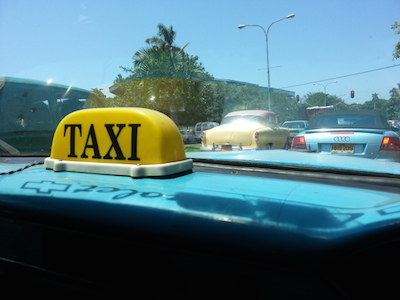
Climbing into a collective taxi at midday, with its whole body heated by the sun and creaking at every pothole, is a shocking experience. You duck your head and make yourself small to sit on the improvised seats. A loose thread hanging from your pants leg or skirt catches on a badly set screw, its metal tip never rounded off. Then comes the hardest test: accepting the driver’s musical taste, which is playing full blast. But it’s also a unique sociological experience, a journalistic look that calls you to reflect on this peculiar reality we inhabit. continue reading
Some days ago I boarded one of these old “submersibles” that roll through Havana. Pure scrap metal but with the powerful speakers of a disco. The reggaeton was deafening. Most of the lyrics were sexist, repetitive… predictable, until there was one that got me thinking. The singer was making fun of someone and spit at them, “Ah… you’re not in the package.” It only lasted a few seconds, “Ah… you’re not in the package,” but it was enough. He was referring, perhaps, to another musician or artist who didn’t appear in the compilations of the so-called “combos,” selections of audiovisuals distributed in alternative ways, which the government abhors.
It’s noteworthy that in the popular repertoire, to be left out of the “package” means to be at the lowest rung of popularity. If a certain video clip, documentary, or movie isn’t included in these alternative compilations, it’s a sign of lack of fame. Most striking is when people have the ability to put together their own “television programming,” in those gigabytes of soap operas, documentaries or musicals… they never include the official programs. That is, the Roundtable show could be the target of the acid chorus, “Ah… you’re not in the package,” and it’s true, of the primetime news, the political events and whatever speech or government declaration is broadcast on the national channels.
The voice of the Cuban Communist Party has been left out of the “package”… because it’s boring, bland, repetitive… and lacks credibility.
16 May 2014
New Machine Without Production / Juan Juan Almeida
Cuban paradoxes. There is a new type of combine designed in Cuba and built in China being tried out in the cane fields in Las Tunas province, with a view to starting serious production starting next year.
The machine was created by technicians and specialists at the 60th Anniversary of the October Revolution factory, in Holguin.
So far everything is going smoothly, all that’s missing is the sugarcane.
14 May 2014
Throwing Out the Sofa* / Juan Juan Almeida
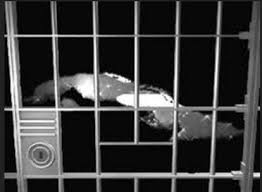 Guamajal-Hombre prison, in Santa Clara province, was put under quarantine because of several cases of dengue fever. The warden of the penitentiary has suspended family and conjugal visits. Undoubtedly they want total isolation so that the information does not get out.
Guamajal-Hombre prison, in Santa Clara province, was put under quarantine because of several cases of dengue fever. The warden of the penitentiary has suspended family and conjugal visits. Undoubtedly they want total isolation so that the information does not get out.
The solution is evacuation because according to the inmates themselves, under the buildings there are piles of feces and urine, due to the old sewers which have never been repaired. This doesn’t matter because what’s important is comments and opinion; inmate health doesn’t matter at all. Excuse the obvious.
*Translator’s note: A common expression from an old Cuban joke, told briefly in the last paragraph here.
15 May 2014
Occasional photos… / Luz Escobar
Prostitution: Made in Cuba? / Angel Santiesteban
The news spread through the international media, except for Cubans, of course, because it pertained to the “secret,” a word that in the last days, after the congress of journalists, has been fashionable. To top it off, they were the same political leaders who tried to blame the communicators for informing without their consent, and even more, without their will.
What’s certain is that in Ecuador they have discovered a network of trafficking of Cuban women, who — deceived by the dream of getting to Miami — were taken off the island and later obligated to sell their bodies in a chain of brothels. continue reading
Fate again mocks these women, who prostitute themselves in Cuba in exchange for almost nothing. The majority are cheap, who work on the dark corners of the barrios. A few make it to the big leagues, which is access to tourism.
Always victims — be it in Havana or in Quito — the Cuban government should influence their legal situations, and shouldn’t make expatriation mandatory for them. In particular, it’s Mariela Castro, from Cenesex, who should take care of the fate of these young women, those who suffer and pay for the social whims imposed, first by her uncle, Fidel, and now by her father, Raul. To be saddled with their last name is a stigma that would take several generations to clean.
Ángel Santiesteban-Prats
Lawton Prison Settlement. April 2014.
Have Amnesty International declare the dissident Cuban, Angel Santiesteban, a prisoner of conscience. Sign here.
Translated by Regina Anavy
13 May 2014
Open Letter to Leopoldo Lopez / Angel Santiesteban
Dear Leopoldo, my brother in struggle,
I write to you from another prison, in Havana, in the claws of the brother dictators Fidel and Raúl Castro.
First of all, I want to send you my moral support. Right now, you need it more than I do, since your country is hanging on by a thread to becoming a totalitarian state like ours, from which we have been suffering for more than half a century.
I admire your upright position in defense of your ideals and dreams for a free country where democracy governs and justice and the rule of law reign supreme.
I have your wife and children in my prayers so that God protects them and maintains the courage with which they support you unconditionally, and so that He returns you soon to your home, next to them, from whom they never should have separated you. continue reading
I am filled with emotion at the solidarity of the deputy, Maria Corina Machado, meanly stripped of the office that the people assigned to her, and of the governor Henrique Capriles, who together with millions of his compatriots has not forgotten you, nor left you alone. This support — that you certainly deserve, for your ideals and the way in which you defend them — perhaps tomorrow can be intended for them, because the government of the puppet Nicolas Maduro, like that of Cuba, doesn’t pardon or forget those who raise their voices against his regime and its abuses.
Many Cubans, by the corresponding share of responsibility that touches us, feel ashamed of the Cuban government that, without hiding in the wings, orders and manipulates Venezuela’s plans, because their interest — it’s no secret — is born from their thirst for oil, their need to count on Venezuelan oil to stay in power.
As on our island, they already have devastated everything, from the economy up to human values. Now – by the death of your people – they have thrown their sharp fangs over your country. They are vampires of fuel, opportunistic parasites who act like those terrible mutant viruses that risk everything up to the end, hanging on to the body of the chosen victim.
In the same way that they harm your country –and it is part of your demands and claims — they continue oppressing us. Clearly, if you can’t contain and avoid the permanence of the Chavistas in power, your nation will be submiited to the biggest misery that you could ever imagine, and will suffocate itself more each day, submitting to an empire of injustices and constant repression.
I pray to God that you stay healthy so that your social light doesn’t go out, and you continue setting an example for those millions of compatriots who today are already struggling for their future, an example also for those of us who observe, expectantly, from the rest of the world, the struggle of the worthy Venezuelan people for their freedom.
Hopefully we can soon raise a glass for the freedom of our people. The dreams that we share today are the seeds of what we will later call reality.
Receive my hug and admiration for surrendering your freedom in the urgent demand we all have.
Ángel Santiesteban-Prats
Lawton Prison Settlement. May 2014.
Have Amnesty International declare the dissident Cuban Angel Santiesteban a prisoner of conscience.
To sign the petition follow the link.
Translated by Anonymous and Regina Anavy.
9 May 2014
Leaving / Orlando Luis Pardo Lazo
At 7 past 7 in the morning of 5 March 2013, yesterday, I left my wooden house where I had lived all my life, to go to José Martí airport. I spent the whole night copying things on a few flashdrives. And deleting evidence of my ever-more-obvious work as a dissident and counter-revolutionary.
Of course I copied texts, which don’t take up much space, of which I had thousands, mine and other peoples’. I copied photos, which do take up a lot of space and aren’t worth the trouble. I copied what I could in those pendrives which would constitute all my work from that Tuesday onwards. Those gigabytes will be my oblivion and my eternity. My portable homeland, my body, my lack of spirit. My illusion that the journey was not true. I did not want the journey to become true with the passage of time. But it did. Better that way.
I left everything I loved on top of my bedsheets. My mother still hasn’t changed the bed clothes, she tells me every so often on the phone: a white and yellow bedcover, knitted in 1934 by my paternal grandmother, the Andalucian lady who was born at the end of the 19th century. continue reading
I donated the Vaio i7, one of the fastest ones, outside the Council of State. I left the Canon 7D camera, also given by generous anonymous hands that turned out to be from Washington DC, where I am now writing this page, in the Rosslyn subway station, which, for some reason, seems to me indistinguishable from the Focsa building.
I left the pictures of the girls I loved, some of them naked, all of them so helpless (none of them was a woman, much less, my wife). I left the insidiously annotated books, which are not to fall into the hands of the State Security. Especially Paradiso, where I save a small novel annotated on the margin of Cuban Letters and Cintio Vitier’s menopausal prologue.
At the airport, the same killers that put me in jail three times took my passport and held me alone in a room for over an hour. Based on the time, I thought the plane to Miami had taken off without me, and I left the terminal area. I told this hatefully to Radio Martí. On the sidewalk, my 77-year-old mom was crying. But Silvia came to me and told me, “Fuck it Landy, go in there only come out if they’re taking you to jail”.
And I went back in, jumping the security barriers as if nothing would happen. A scene from, I believe, Basquiat came to my mind. Until a black man wearing a uniform ran to me and took an object out of his front pocket. I thought it was a gun, and I swear to God I did not care. But it turned out to be just my passport. The man wearing olive green asked me for forgiveness and said there was “an error in the database”.
It turned out that they had delayed the flight for three hours (these Miami charter companies are 100% Castro’s police). Minutes later, at the Miami airport, they called me out of the line with loudspeakers, my name was a “priority case” (and no, don’t even tell me about the “Americans”; in fact I myself am one more American).
Hugo Chavez was just now dying in Venezuela. Nicolas Madura was crying on Miami’s flat screen TVs. My night would soon end with Pedro Sevcec, who immediately asked me the same question State Security asked me in Havana: What did you do to the Cuban flag?
The next day I was in Manhattan, which is the spitting image of Havana but just huge. And the next day I was in DC. The only thing I can’t stand is that every night I have the same recurrent dream about Cuba, which I am not going to tell you about.
Orlando Luis Pardo Lazo
In USA
7 May 2014
From Penultimos Dias
Translated by GH
Reconnecting with Carlos III / Rebeca Monzo
 In spite of its title, the subject of this post is not historical but rather “hysterical.”
In spite of its title, the subject of this post is not historical but rather “hysterical.”
They once tried unsuccessfully to change the name of Carlos III Avenue to Salvador Allende Avenue, going so far as to remove the statue of the Spanish king who lent his name to this important Havana artery, which begins at Belascoaín Street and ends at Independence Avenue (also known as Rancho Boyeros Avenue). An important market named after the famous avenue is located here. Built in the 1950s, it later became a shopping mall made up of a collection of small stores.
Upon returning to “my planet,” I went looking for some items that are becoming difficult to find in the hard currency stores, figuring I could probably find them here. While going about my task, I suddenly noticed a married couple talking loudly with the obvious intention of being overheard. They were debating the subject of food shortages. A group of people quickly began forming around them, made up of those who happened to be there at the time. The wife, a woman of advanced years, began directing her comments to the youngest of those present.
“Do you have a dentures?” she asked them, to which those being queried answered affirmatively. Then, turning once again to the larger group, she said, “Well, considering how old you all seem to be, I imagine they stopped giving you milk when you were six and quite possibly none of you has ever chomped down on a good steak.”
13 May 2014
